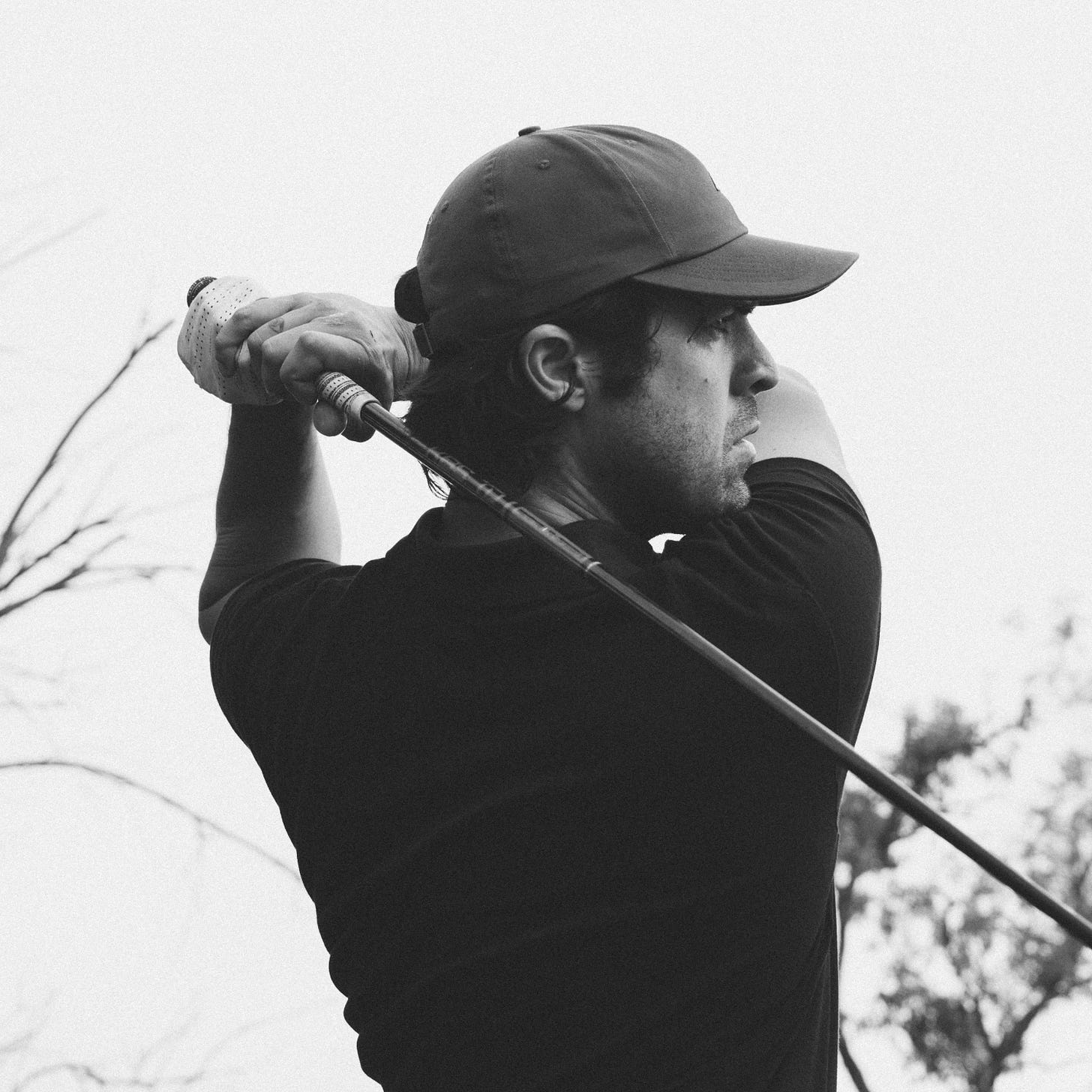Cam Avery on Golf, Flow, and Finding Focus
Forget what you thought about golf—its cultural revival is reshaping the game, and the man.
It wasn’t that long ago that golf felt more ‘dad joke’ than cultural moment.
It was the Boss’s sport. A pastel game for staid dads. Defined by pleated khakis and Scotch-at-the-lubhouse vibes. A tad anal-retentive. Exclusive…yet unhip.
A good walk spoiled, as the famous old line says.
But then a few years ago, something weird happen…






